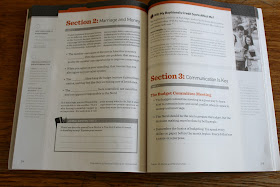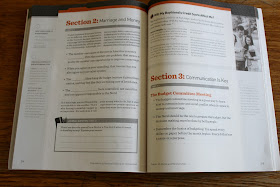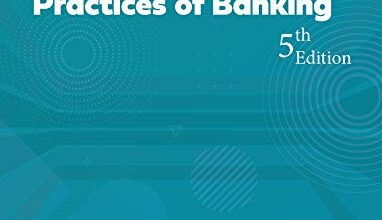The Pros and Cons of Delayed Financing Mortgages

Table of Contents
The Pros and Cons of Delayed Financing Mortgages, when choosing a mortgage lender for a delayed financing mortgage, make sure you carefully consider the qualifications for this type of mortgage. If you are unfamiliar with the process, read on to find out more about delayed financing and the documentation required. Cash-out refinance transactions that utilize delayed financing are especially popular, but be sure to learn about the requirements before proceeding with the transaction. There are several benefits and disadvantages to this type of mortgage. The pros and cons of delayed financing mortgages are explained in this article.
Disadvantages of delayed financing
Delay in closing your loan can be beneficial if you have cash on hand. The reason why delayed financing is advantageous is that you don’t lock yourself into a 30-year mortgage. If rates rise, you can pay off the loan early. You also have the option to renovate the property. Before you decide to opt for delayed financing, consult with your financial advisor. In addition, there are some disadvantages to delayed financing.
Although delayed financing may have some drawbacks, it is an excellent option for those with cash and no need to refinance. Besides allowing you to keep cash, delayed financing allows you to get a mortgage and a cash-out refinance at a later time. However, the process can be time-consuming. Delay in financing may also cause you to lose out on home equity. If you’re a first-time home buyer, delayed financing might be your best bet.
Delay in financing has several disadvantages. It requires repayment of home equity loan or the gift you received from someone who sold you the home. Moreover, delayed financing may not be a great option if the property you’re investing in is heavily mortgaged. If you’re buying investment property, make sure it’s free of liens and mortgages. This way, you’ll get a better purchase price. This can translate to a higher return on investment.
Delay in closing your loan can also cost you money. If you’re not able to pay for the full amount, you could end up with a short-term loan that will take several months to close. Furthermore, delaying the financing process could affect your credit score. You could end up with bad credit and be rejected. However, delayed financing can give you the edge in negotiating with the seller. It’s better to make an offer that’s cash-based than one that relies on delayed financing.
Delay in closing may also cause you to miss out on some lucrative real estate deals. If you’re buying an investment property in a hot market, you may be able to secure the property for cash. But you’ll still need to make mortgage payments on the property unless you have the cash on hand. If you’re a savvy investor, delayed financing may be the best option for you. However, you must consider the disadvantages of delayed financing before deciding on this option.
Delay in closing your loan may be a disadvantage if you’re buying a multimillion-dollar property. Besides, delayed financing isn’t backed by Fannie Mae, so you’ll have to meet additional qualification requirements and documentation requirements. Moreover, delays may also cost you more money than usual mortgage rates. Before choosing delayed financing, consider its benefits and disadvantages. The time it takes to close your loan might be worth it if you get your equity sooner.
Documentation required to qualify for delayed financing mortgage
Before applying for a delayed financing mortgage, applicants must first establish that the purchase of the property was made at arm’s length. That means the seller and buyer were unrelated, and no third party influenced the sale. They also must provide proof of a cash purchase, such as a settlement statement or grant deed. Ultimately, this type of mortgage is not for everyone, but if it is an option you may find appealing.
When it comes to buying a home with delayed financing, a downsized homeowner may have extra funds available for a cash offer. If so, they can tap into their investment portfolios or existing equity to qualify for delayed financing mortgage loans. But for the rest of us, delayed financing mortgages are a serious option for downsizing. If you’re unsure of whether delayed financing is the right option for you, check out our Delayed Financing Guidelines.
For the delayed financing mortgage program, borrowers must provide documentation proving that they have the funds to make the down payment. Bank statements, bills of sale, and loan settlement paperwork are good proofs. The delayed financing program will reimburse up to 100 percent of the initial investment, which includes the purchase price, buyer fees, and closing costs. A buyer may be required to provide a gift letter to establish this. If the funds are used for a HELOC, the buyer’s loan to the seller must be a arms-length transaction.
While delayed financing is often best suited for multi-million-dollar properties, it’s not suitable for low-priced properties. The applicant must be able to live without the money for up to six months. Having a large earnest money deposit or mortgage preapproval is a great way to make yourself stand out amongst the other homebuyers. If a delayed financing mortgage is right for you, a high earnest money deposit may also help.
While delayed financing is a great option for people with good investments, it’s not for everyone. A delayed mortgage requires more paperwork than a standard mortgage, including a gift letter. For some loans, a delayed mortgage requires the buyer to have a substantial cash down payment. In other words, a delayed financing mortgage is best suited for people with a good investment portfolio and low liquidity. It’s important to remember that a delayed mortgage will still require a regular mortgage payment, and the lender will have different loan requirements than a traditional mortgage.
Whether you’re looking to refinance or purchase a new home, there is a delayed financing mortgage for you. These mortgages allow you to make a cash offer on a property, but require a 6-month wait before cashing out. These mortgages can be very valuable tools for today’s financially savvy homeowner or property investor. If you want to take advantage of delayed financing, get started today!
Cash-out refinance transactions utilizing delayed financing
Delay financing refers to a transaction in which the buyer purchases a home in cash but secures a mortgage later. The buyer benefits from delayed financing in that they get to retain the funds used for the purchase while avoiding the usual fees associated with cash-out refinancing. The seller benefits from delayed financing as it gives the buyer the leverage needed to negotiate the final price of the property. The buyer also benefits from delayed financing because it frees up funds that were used for the purchase of the home while making regular long-term payments.
When a buyer purchases a home in cash, he or she must wait 180 days to refinance it. However, there are some exceptions to delayed financing, such as a lower interest rate and loan-to-value ratio of seventy-five percent. The buyer may use the money to pay off debt, make home improvements, or even invest in a portfolio. In addition, delayed financing allows the buyer to use the funds from the refinance for debt consolidation, education, and other purposes.
When buyers use delayed financing to refinance their home, they are more likely to close the transaction quickly. They are more likely to be chosen by sellers when they are able to close on the property quickly. Delay financing is not without its disadvantages, however. For example, delayed financing can result in changes in underwriting guidelines, sudden spikes in interest rates, and appraisal problems. However, in the right circumstances, delayed financing can be a big advantage.
Delay financing also provides a homeowner with an upper hand in negotiating a home. Many sellers prefer to accept cash offers as they do not need to wait six months for a mortgage to be processed. Further, delayed financing can provide leverage for the buyer, allowing them to close within the six-month timeframe. Delay financing also allows a buyer to purchase a second home or investment property without paying for the renovations.
While delayed financing does limit the amount of money that a buyer can withdraw from a property, it also offers the buyer the option of extending payments over a longer period of time without straining their monthly budget. This is a major advantage to cash-out home buyers. This type of financing is typically only offered for certain types of conventional and jumbo loans, and VA loans cannot be used for this type of financing.
Delay financing is available for conventional loans, but FHA and VA loans do not qualify. If you do not qualify for delayed financing, you may be stuck with a higher interest rate for several months. Lastly, delayed financing is only available on conventional loans. You must have at least 20 percent equity in your home before you can use the funds. So, if you want to expand your investment portfolio, delayed financing is a great option. We continue to produce content for you. You can search through the Google search engine.




